Search Results
41 records found
J. Edgar (2011)
The life and work of J. Edgar Hoover offers grist for a dozen different movies or more, and Clint Eastwood’s J. Edgar wants to be all of them at once. It’s the sort of staidly respectable, competently directed biopic that gives a bad name to competently directed biopics, and possibly to respectability.
Jackie Chan: An Appreciation
The fact is, Jackie’s appeal is hard to sum up in a single sentence. Ask five different Jackie Chan fans what they like about him, and you may get five different answers.
Jane Goodall on Chimpanzees, Language and the Soul
Disneynature’s Chimpanzee, the latest family-friendly nature documentary from Earth directors Alastair Fothergill and Mark Linfield, depicts a surprising twist in the early life of a young chimpanzee nicknamed “Oscar” living in the Taï Forest in the Ivory Coast. Dr. Jane Goodall, the world’s foremost expert in chimpanzees, has seen the film, and discussed it with me via phone a couple of days ago.
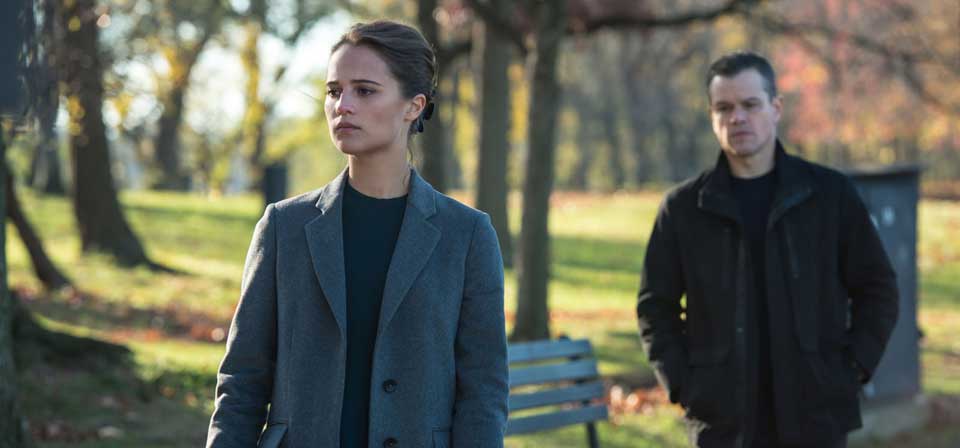
Jason Bourne (2016)
The world has changed since 2007, and not only in the ways the filmmakers are self-consciously trying to engage: concerns about cyber-security, online privacy, government spying and the pressure on tech companies to give the government whatever information or access it wants.
Jaws (1975)
Steven Spielberg’s breakout hit is a perfect storm of primal fears (man-eating predators, the unseen, the ocean), shrewd, emotionally riveting direction combined with sympathetic lead performances, and that classic two-note theme from John Williams’ edgy score.
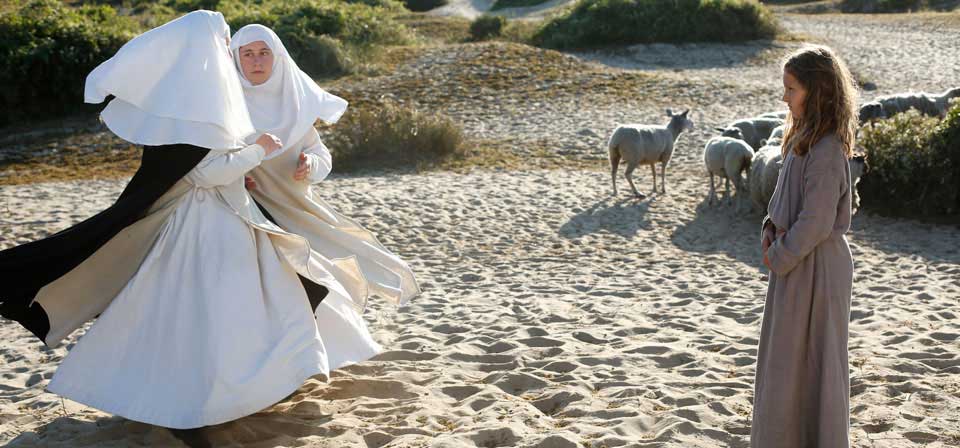
Jeannette: The Childhood of Joan of Arc (2018)
Jeannette is a dialogue, and a mutual cross-examination, not only among the main characters of the drama, and above all between man and God, but also between the poet Péguy and the filmmaker Dumont, and even between Péguy the Socialist unbeliever of 1897 and Péguy the believing Catholic of 1910.
Jesuitical
Blaise Pascal was a great critic of Jesuit casuistry, and coined the pejorative adjective “Jesuitical,” meaning “crafty; practicing equivocation or overly subtle rationalization.” That may not have been fair to the Jesuits of Pascal’s day, but the image of the sly, deceptive Jesuit stuck.
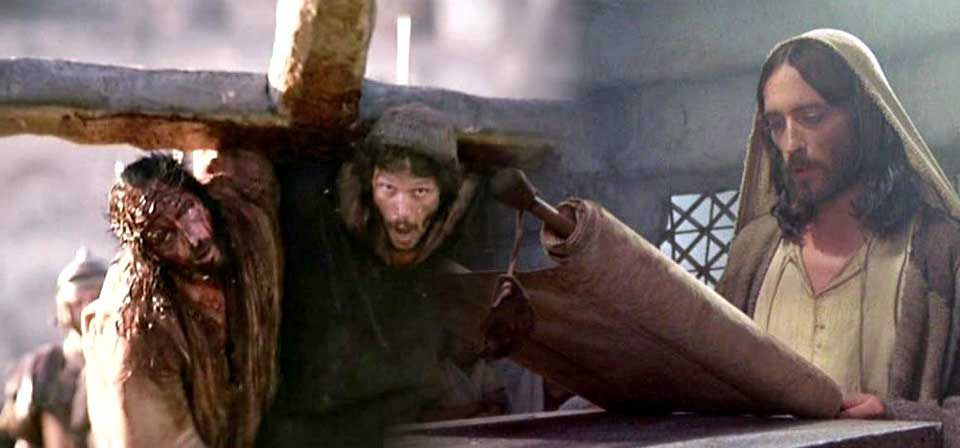
Jesus movies and antisemitism: Jesus of Nazareth and The Passion of the Christ
While concerns around “Jesus of Nazareth” were short-lived, The Passion of the Christ remains controversial, beloved by many and condemned by many others.
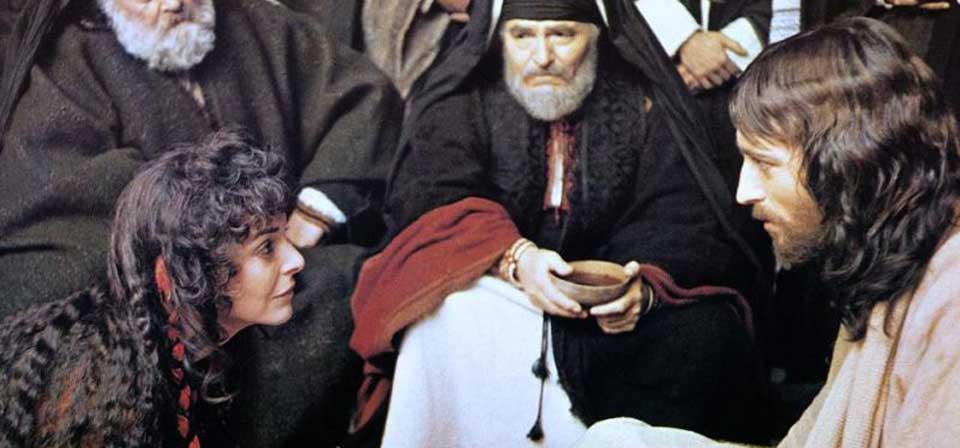
Jesus of Nazareth (1977)
After the four Gospels, if one text is more influential than any other in the tone of Jesus of Nazareth, it might be the Vatican II declaration on the Church in relation to non-Christian religions, Nostra Aetate, a watershed document in Jewish-Catholic relations.
The Jesuses that Pat Forgot!
My esteemed colleague Pat Archbold’s lively and engaging post on big-screen Jesuses has obliged me to add a few notes of my own (with apologies for the post title joke—I don’t really think Pat “forgot” anything, since his list wasn’t meant to be exhaustive in the first place, and certainly mine isn’t either).
The Jeweller’s Shop (1990)
The story is propelled by ordinary (though sometimes philosophically elevated) dialogue, and a mysterious character in the play, Adam, becomes a simple priest — a rather Wojtyla-like priest, actually, who takes the young people of his parish on nature hikes in the mountains.
Jewish/Catholic: Religious Identity, Fluidity and the Holocaust
“One is Christian or Jewish, not both.” So says the chief rabbi of Paris in The Jewish Cardinal (2013), Israeli-born filmmaker Ilan Duran Cohen’s biopic about Cardinal Jean-Marie Lustiger (Laurent Lucas) — a Jewish convert to Catholicism who insisted on religious dual citizenship, embracing Catholicism without rejecting Judaism.
Jimmy Neutron: Boy Genius (2001)
But then, added to all that, Jimmy also learns moral lessons about parents, family, obedience, consequences, and so on that callow Calvin would never have glommed to in a million years.
John Carter [of Mars] (2012)
Burroughs didn’t invent science fiction, but he perhaps created a genre of serial sci-fi fantasy adventure, with an idealized action hero going from one extraterrestrial adventure to another. Carter’s closest literary ancestor may be Sinbad from One Thousand and One Nights, which is saying something. Buck Rogers, James Kirk and Luke Skywalker are all his descendants, and Jake Sully — the hero of Avatar, which really is a patchwork borrowing from everything Burroughs inspired — is perhaps more indebted to John Carter than any other character in history.
John Carter [video]
John Carter in 60 seconds: My “Reel Faith” video review.
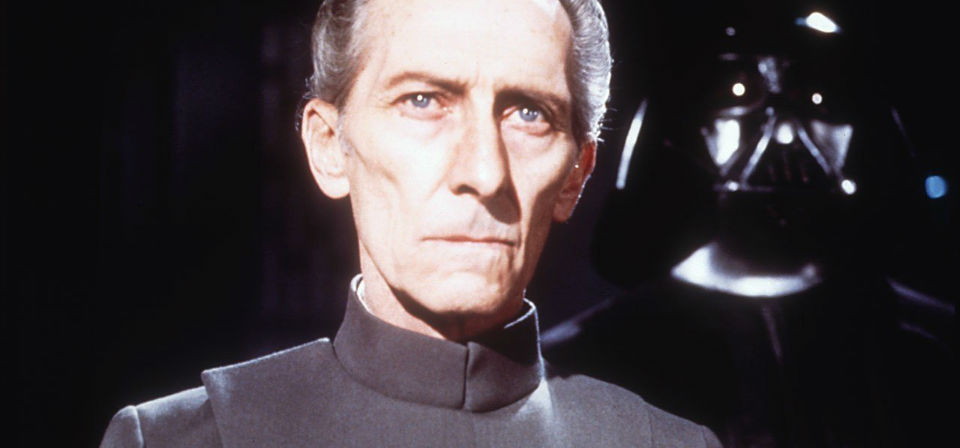
John Paul the Great professor defends Rogue One
Thomas P. Harmon, professor of theology and culture at John Paul the Great Catholic University, has written a thoughtful essay for Catholic World Report responding to my critique of the moral murkiness of Rogue One: A Star Wars Story.
John Q (2002)
John Q, which is sort of the moviegoing equivalent of being taken hostage, was directed by Nick Cassavetes (She’s So Lovely). Cassavetes — like the film’s hero, John Q. Archibald (Washington) — has a child in need of a life-saving organ transplant. I feel for the director, and for his hero. I cannot condone the actions of either.
![Jojo Rabbit [video]](/uploads/articles/jojorabbit.jpeg)
Jojo Rabbit [video] (2019)
Taika Waititi has directed some cracking comedies, but can even he make Hitler funny?
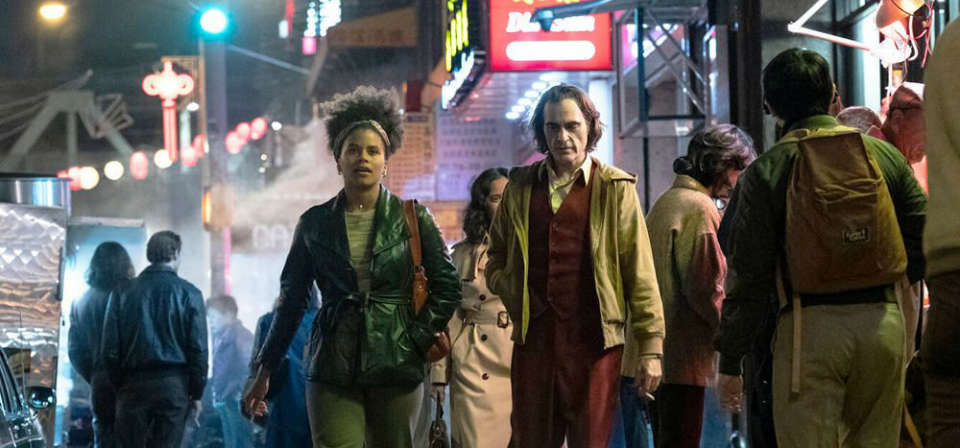
Joker (2019)
Is it possible, in the world of Joker, to believe in real heroism? Do the filmmakers even care about that question?
Jonah: A VeggieTales Movie (2002)
(Review by Mark Shea) I know. It sounds uninspiring on paper, if you haven’t seen them. But — you gotta trust me on this — these guys are really funny, a sort of strange brew mixing Monty Python, MTV, your third grade Sunday School teacher and a tiny bit of Robin Williams — all with a G rating.
Recent
- Benoit Blanc goes to church: Mysteries and faith in Wake Up Dead Man
- Are there too many Jesus movies?
- Antidote to the digital revolution: Carlo Acutis: Roadmap to Reality
- “Not I, But God”: Interview with Carlo Acutis: Roadmap to Reality director Tim Moriarty
- Gunn’s Superman is silly and sincere, and that’s good. It could be smarter.
Home Video
Copyright © 2000– Steven D. Greydanus. All rights reserved.